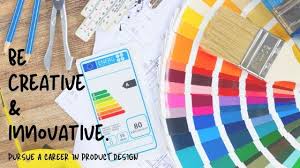Studying product design gives you the broad theoretical knowledge and the practical skillset you need to create new products
Job options
Jobs directly related to your degree include:
- CAD technician
- Clothing/textile technologist
- Colour technologist
- Exhibition designer
- Furniture designer
- Interior and spatial designer
- Product designer
Jobs where your degree would be useful include:
- Advertising art director
- Automotive engineer
- Furniture conservator/restorer
- Graphic designer
- Materials engineer
- Procurement manager
- Product manager
- Production designer, theatre/television/film
- Stylist
Work experience
It's important to gain some relevant work experience to build your portfolio and establish a useful network of contacts. Look for an industrial designer in your area and ask if you can complete a placement with them during your university studies. In some cases, a placement could even lead to a permanent job.
Look out for product or industrial design competitions that you could enter, or exhibitions that you could take part in. Anything that can add to your portfolio will be helpful. You'll need to be able to demonstrate the breadth of your work and any specialist interests.
Keep up to date with industry trends and developments by reading design journals to find out about new technology.
Typical employers
You can find employment in both the private and public sector. Private sector work could include manufactured products for the domestic and industrial market. Working in the public sector may involve designing interactive facilities, such as public information points and equipment used by services such as the police, fire and ambulance.
Employers include:
- industrial and domestic product manufacturers
- car manufacturers
- point-of-sale designers
- retailers.
Skills for your CV
A degree in product design or industrial design develops your creative design skills and gives you the technical ability you need to use production methods and materials creatively. It also equips you with other skills that are valued by many employers, such as:
- presentation skills
- communication skills
- the ability to work to deadlines
- commercial and entrepreneurial skills
- problem-solving skills
- the ability to use your initiative and work independently
- teamworking skills
- visual and spatial awareness
- general and specialist IT skills, such as computer-aided design (CAD).








